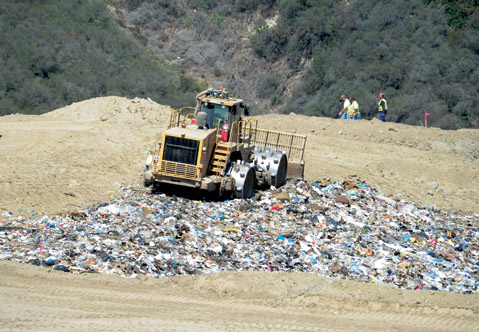Trash-Talking New Tajiguas Technology
Critics Complain About Public Funding and Coastal Development

Continuing the charged tale of the Tajiguas Landfill, the supervisors gave Public Works staff the go-ahead this week to study public funding options for high-tech equipment that will prolong the dump’s life by a decade. This new technology — a materials recovery facility (MRF) and an anaerobic digester — would extract recyclables and compostable material from the waste stream and then capture methane to generate electricity. Two years ago, the county hired Mustang Renewable Power Ventures to construct that state-of-the-art facility, which would recover 60 percent of garbage buried in the dump.
It now costs $84 per ton to dump at Tajiguas Landfill. County public works staff and Mustang recently hashed out a deal that would bring the fee to $146 per ton. That figure is double the price tag for comparable dumps in the state, a critic noted Tuesday.
In rare form, environmentalists and fiscal conservatives alike took to the podium to argue against the project. The enviros have long taken issue with the fact that the project means further industrialization on the coast. Likewise, COLAB’s Andy Caldwell noted many of the financial details of the project are still uncertain, further arguing ratepayers — not all county taxpayers — should be funding this “dream project.” The price tag of the anaerobic digester ranges from $40 million-$50 million, Public Works staff said, and the county could receive $3 million from a state grant which would reduce the per-ton price by three to four dollars.
“We’re in between a rock and a hard place,” said Supervisor Salud Carbajal, juxtaposing his record that has “championed the protection of the Gaviota Coast” against the benefits, including mitigating greenhouse-gas emissions equivalent to roughly 26,000 cars. All supervisors agreed more information about public funding options would be useful.



